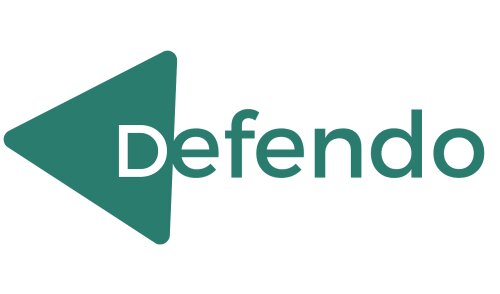Best Foreclosure Lawyers in Santiago
Share your needs with us, get contacted by law firms.
Free. Takes 2 min.
Free Guide to Hiring a Real Estate Lawyer
List of the best lawyers in Santiago, Chile
About Foreclosure Law in Santiago, Chile
Foreclosure, known in Spanish as "ejecución hipotecaria" or "remate judicial," is a legal process that allows a lender or creditor to recover the balance of a loan from a borrower who has stopped making payments. In Santiago, Chile, foreclosures generally involve the forced sale of mortgaged property after the borrower has defaulted. The legal process is conducted through the courts and is designed to ensure that creditors can recover the amounts owed to them, while borrowers have a fair opportunity to defend against the action or negotiate terms. Understanding how foreclosure works in Santiago is essential for both property owners and potential homebuyers.
Why You May Need a Lawyer
Facing foreclosure can be overwhelming, and the legal processes can be complex and daunting. Many people in Santiago seek legal assistance with foreclosure for situations such as:
- Receiving a foreclosure notice due to missed mortgage payments
- Challenging the validity of the lender's claim or debt amount
- Negotiating alternatives with creditors, such as loan modifications or payment plans
- Understanding the court proceedings and their rights during the foreclosure process
- Protecting family property, including ensuring proper valuation and fair sale at public auction ("remate")
- Addressing possible fraud or procedural errors by banks or lenders
- Advising property buyers at auctions on the legal status of foreclosed properties
A lawyer with expertise in foreclosure law in Santiago can offer guidance, represent your interests in court, and help you understand the options available for resolving your situation or minimizing losses.
Local Laws Overview
Foreclosure in Santiago, Chile is governed mainly by the Civil Procedure Code, the General Banking Law, and by judicial procedures managed by the civil courts. Key points include:
- Foreclosure procedures are primarily judicial processes. This means a court oversees and approves the forced sale of the property.
- The creditor must demonstrate the existence and enforceability of the mortgage or debt, usually through documentation and registration with the Real Estate Registry.
- The debtor is notified and allowed to respond to the foreclosure petition, present defenses, or settle the debt before the auction.
- If the debt is not paid or settled, the court arranges a public auction (remate) where the property is sold to the highest bidder, with proceeds used to pay the creditor and, if any surplus remains, the debtor.
- Special rules exist to ensure proper notice, lawful valuation of property, and fair auction practice.
- After the auction, there are deadlines and procedures for the delivery of possession to the new owner and for dealing with any occupants or tenants.
- Bankruptcy or insolvency laws may also affect the foreclosure process if the debtor has multiple creditors.
It is important for both debtors and buyers to review the local statutes and procedural requirements and to proceed with the advice of qualified legal counsel.
Frequently Asked Questions
What is the first step in a foreclosure process in Santiago?
The process usually begins when the creditor files a lawsuit in civil court demonstrating default and seeking the forced sale of the mortgaged property.
How will I know if my property is being foreclosed?
You will receive a formal court notice (notificación judicial) of the lawsuit and the procedures to follow. This notice gives you the opportunity to respond or defend your case.
Can I stop the foreclosure once it has started?
Yes, you may stop the process by paying the owed amount, negotiating a settlement with the creditor, or presenting valid legal defenses that challenge the foreclosure.
How long does a foreclosure typically take in Santiago?
The timeline can vary, but the process generally takes several months from the initial filing to the public auction, depending on the court's schedule and any legal actions by the parties.
What happens at the auction (remate)?
The court organizes a public auction where the property is sold to the highest bidder. The money from the sale first covers the costs of the process and the debt; any surplus is returned to the debtor.
Can I buy my own property back at the auction?
Yes, the debtor or any third party can participate in the public auction and potentially repurchase the property, subject to the same rules as other bidders.
What rights do tenants have during foreclosure?
Tenants generally have the right to be notified of the foreclosure and may be able to continue occupying the property until the auction has concluded and possession is delivered to the new owner, though exact rights may vary.
Will foreclosure affect my credit or ability to buy property in the future?
Yes, a foreclosure is recorded and can negatively impact your credit history and your ability to secure loans or purchase property in the future.
Are there alternatives to foreclosure?
Alternatives may include loan modification, a payment plan, private sale of the property, or a voluntary surrender (dación en pago). A lawyer can help you analyze and negotiate these options.
Do I need a lawyer for foreclosure proceedings?
While not strictly required by law, it is strongly recommended to have legal representation, as foreclosure procedures are complex and any errors can result in significant financial loss.
Additional Resources
- Servicio Nacional del Consumidor (SERNAC) - For advice and mediation in consumer credit disputes
- Corporación de Asistencia Judicial Metropolitana - Provides free or low-cost legal services for qualifying individuals
- Corte Suprema de Justicia - The official judiciary body that oversees civil courts in Santiago
- Registro Conservador de Bienes Raíces - The Real Estate Registry where property rights and encumbrances are recorded
- Banco Central de Chile - For economic and legal information on mortgages and credit systems
Next Steps
If you or someone you know is facing foreclosure in Santiago, consider the following actions:
- Review all documents from lenders and courts thoroughly to understand your situation and deadlines.
- Contact a lawyer who specializes in foreclosure or property law for personalized guidance.
- Consider exploring alternative resolutions such as negotiation, refinancing, or voluntary sales if appropriate.
- If you have limited resources, reach out to public legal aid services or consumer protection bodies for support.
- Gather all financial records, mortgage agreements, correspondence, and court documents to assist your legal advisor.
Timely action and informed decisions can make a significant difference. Seeking qualified legal advice as early as possible will give you the best chance to protect your interests during a foreclosure process in Santiago, Chile.
Lawzana helps you find the best lawyers and law firms in Santiago through a curated and pre-screened list of qualified legal professionals. Our platform offers rankings and detailed profiles of attorneys and law firms, allowing you to compare based on practice areas, including Foreclosure, experience, and client feedback.
Each profile includes a description of the firm's areas of practice, client reviews, team members and partners, year of establishment, spoken languages, office locations, contact information, social media presence, and any published articles or resources. Most firms on our platform speak English and are experienced in both local and international legal matters.
Get a quote from top-rated law firms in Santiago, Chile — quickly, securely, and without unnecessary hassle.
Disclaimer:
The information provided on this page is for general informational purposes only and does not constitute legal advice. While we strive to ensure the accuracy and relevance of the content, legal information may change over time, and interpretations of the law can vary. You should always consult with a qualified legal professional for advice specific to your situation.
We disclaim all liability for actions taken or not taken based on the content of this page. If you believe any information is incorrect or outdated, please contact us, and we will review and update it where appropriate.











